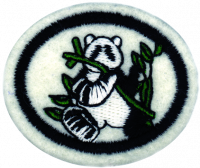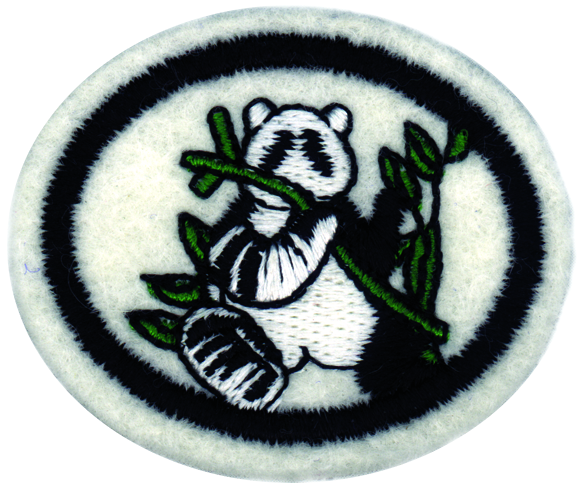Difference between revisions of "AY Honors/Endangered Species/Answer Key/es"
From Pathfinder Wiki
< AY Honors | Endangered SpeciesAY Honors/Endangered Species/Answer Key/es
(Created page with "</noinclude>") |
(Updating to match new version of source page) |
||
| (6 intermediate revisions by 2 users not shown) | |||
| Line 2: | Line 2: | ||
<!--{{Honor_Master|honor={{#titleparts:{{PAGENAME}}|1|3}}|master=Zoology|group=required}}--> | <!--{{Honor_Master|honor={{#titleparts:{{PAGENAME}}|1|3}}|master=Zoology|group=required}}--> | ||
<!--{{Honor_Master|honor=Endangered Species|master=Conservation}}--> | <!--{{Honor_Master|honor=Endangered Species|master=Conservation}}--> | ||
| − | <section begin="Body" /> | + | <section begin="Body" /> |
{{ansreq|page={{#titleparts:{{PAGENAME}}|2|1}}|num=1}} | {{ansreq|page={{#titleparts:{{PAGENAME}}|2|1}}|num=1}} | ||
<noinclude></noinclude> | <noinclude></noinclude> | ||
| Line 43: | Line 43: | ||
{{CloseReq}} <!-- 1 --> | {{CloseReq}} <!-- 1 --> | ||
{{ansreq|page={{#titleparts:{{PAGENAME}}|2|1}}|num=2}} | {{ansreq|page={{#titleparts:{{PAGENAME}}|2|1}}|num=2}} | ||
| − | <noinclude> | + | <noinclude></noinclude> |
| − | </noinclude> | + | <!-- 2. Escribir Génesis 1:28 en sus propias palabras. --> |
| − | <!-- 2. | ||
| − | |||
| − | |||
{{clear}} | {{clear}} | ||
| Line 60: | Line 57: | ||
{{CloseReq}} <!-- 2 --> | {{CloseReq}} <!-- 2 --> | ||
{{ansreq|page={{#titleparts:{{PAGENAME}}|2|1}}|num=3}} | {{ansreq|page={{#titleparts:{{PAGENAME}}|2|1}}|num=3}} | ||
| − | <noinclude> | + | <noinclude></noinclude> |
| − | </noinclude> | + | <!-- 3. Hacer una lista de cuatro factores que han causado que animales estén en peligro de extinción. --> |
| − | <!-- 3. | ||
| − | |||
| − | |||
| − | |||
{{clear}} | {{clear}} | ||
| Line 84: | Line 77: | ||
{{CloseReq}} <!-- 3 --> | {{CloseReq}} <!-- 3 --> | ||
{{ansreq|page={{#titleparts:{{PAGENAME}}|2|1}}|num=4}} | {{ansreq|page={{#titleparts:{{PAGENAME}}|2|1}}|num=4}} | ||
| − | <noinclude> | + | <noinclude></noinclude> |
| − | </noinclude> | + | <!-- 4. Nombrar cuatro animales que ahora están extintos. --> |
| − | <!-- 4. | ||
| − | |||
| − | |||
| − | |||
| − | |||
| − | |||
| − | |||
| − | |||
| − | |||
| − | |||
{{clear}} | {{clear}} | ||
| Line 102: | Line 85: | ||
{{CloseReq}} <!-- 4 --> | {{CloseReq}} <!-- 4 --> | ||
{{ansreq|page={{#titleparts:{{PAGENAME}}|2|1}}|num=5}} | {{ansreq|page={{#titleparts:{{PAGENAME}}|2|1}}|num=5}} | ||
| − | <noinclude> | + | <noinclude></noinclude> |
| − | </noinclude> | + | <!-- 5. Hacer una lista de cuatro cosas que se están haciendo para salvar animales en peligro de extinción. --> |
| − | <!-- 5. | ||
| − | |||
| − | |||
| − | |||
| − | |||
| − | |||
| − | |||
| − | |||
| − | |||
<noinclude></noinclude> | <noinclude></noinclude> | ||
{{CloseReq}} <!-- 5 --> | {{CloseReq}} <!-- 5 --> | ||
{{ansreq|page={{#titleparts:{{PAGENAME}}|2|1}}|num=6}} | {{ansreq|page={{#titleparts:{{PAGENAME}}|2|1}}|num=6}} | ||
| − | <noinclude> | + | <noinclude></noinclude> |
| − | </noinclude> | + | <!-- 6. Hacer una lista de cuatro actividades que se puede hacer para ayuda a los animales salvajes. --> |
| − | <!-- 6. | ||
| − | |||
| − | |||
| − | |||
| − | |||
| − | |||
| − | |||
| − | |||
{{clear}} | {{clear}} | ||
| Line 145: | Line 111: | ||
{{CloseReq}} <!-- 6 --> | {{CloseReq}} <!-- 6 --> | ||
{{ansreq|page={{#titleparts:{{PAGENAME}}|2|1}}|num=7}} | {{ansreq|page={{#titleparts:{{PAGENAME}}|2|1}}|num=7}} | ||
| − | <noinclude> | + | <noinclude></noinclude> |
| − | </noinclude> | + | <!-- 7. Hacer una lista de 10 animales en peligro de extinción. Decir donde viven y por qué se han convertido en peligro de extinción. --> |
| − | <!-- 7. | ||
| − | |||
| − | |||
{{clear}} | {{clear}} | ||
| Line 158: | Line 121: | ||
{{CloseReq}} <!-- 7 --> | {{CloseReq}} <!-- 7 --> | ||
{{ansreq|page={{#titleparts:{{PAGENAME}}|2|1}}|num=8}} | {{ansreq|page={{#titleparts:{{PAGENAME}}|2|1}}|num=8}} | ||
| − | <noinclude> | + | <noinclude></noinclude> |
| − | </noinclude> | + | <!-- 8. Hacer dos de las siguientes actividades: --> |
| − | <!-- 8. | + | <noinclude></noinclude> |
| − | <noinclude | ||
| − | |||
{{ansreq|page={{#titleparts:{{PAGENAME}}|2|1}}|num=8a}} | {{ansreq|page={{#titleparts:{{PAGENAME}}|2|1}}|num=8a}} | ||
<noinclude></noinclude> | <noinclude></noinclude> | ||
| Line 168: | Line 129: | ||
{{clear}} | {{clear}} | ||
| − | {{AY Honors/Zoo Visit | + | {{AY Honors/Zoo Visit}} |
<noinclude></noinclude> | <noinclude></noinclude> | ||
| Line 181: | Line 142: | ||
{{clear}} | {{clear}} | ||
| − | + | <noinclude></noinclude> | |
| − | <noinclude | ||
| − | |||
{{CloseReq}} <!-- 8b --> | {{CloseReq}} <!-- 8b --> | ||
{{ansreq|page={{#titleparts:{{PAGENAME}}|2|1}}|num=8c}} <!--T:44--> | {{ansreq|page={{#titleparts:{{PAGENAME}}|2|1}}|num=8c}} <!--T:44--> | ||
| Line 199: | Line 158: | ||
{{clear}} | {{clear}} | ||
| − | + | <noinclude></noinclude> | |
| − | <noinclude | ||
| − | |||
{{CloseReq}} <!-- 8d --> | {{CloseReq}} <!-- 8d --> | ||
{{ansreq|page={{#titleparts:{{PAGENAME}}|2|1}}|num=8e}} <!--T:49--> | {{ansreq|page={{#titleparts:{{PAGENAME}}|2|1}}|num=8e}} <!--T:49--> | ||
| − | <noinclude> | + | <noinclude></noinclude></noinclude> |
| − | </noinclude | ||
| − | |||
| − | |||
| − | |||
| − | |||
| − | |||
| − | |||
| − | |||
| − | |||
| − | |||
| − | |||
| − | |||
{{CloseReq}} <!-- 8e --> | {{CloseReq}} <!-- 8e --> | ||
{{CloseReq}} <!-- 8 --> | {{CloseReq}} <!-- 8 --> | ||
| + | |||
| + | [[Category:Adventist Youth Honors Answer Book/Do at home{{GetLangSuffix}}]] | ||
{{CloseHonorPage}} | {{CloseHonorPage}} | ||
Latest revision as of 01:49, 4 January 2023
Especies en peligro de extinción
Nivel de destreza
2
Año
2005
Version
20.02.2026
Autoridad de aprobación
Asociación General
1
Definir los siguientes términos:
1a
En peligro de extinción
1b
Extinguido
1c
Hábitat
1d
Biomas
1e
Cadena alimentaria
1f
Cazador furtivo
2
Escribir Génesis 1:28 en sus propias palabras.
3
Hacer una lista de cuatro factores que han causado que animales estén en peligro de extinción.
4
Nombrar cuatro animales que ahora están extintos.
5
Hacer una lista de cuatro cosas que se están haciendo para salvar animales en peligro de extinción.
6
Hacer una lista de cuatro actividades que se puede hacer para ayuda a los animales salvajes.
7
Hacer una lista de 10 animales en peligro de extinción. Decir donde viven y por qué se han convertido en peligro de extinción.
8
Hacer dos de las siguientes actividades:
8a
Visitar un zoológico o una reserva de animales que tenga uno o más animales en peligro de extinción en cautiverio. Hacer una lista de los animales que se vio, dónde normalmente viven y por qué se han convertido en peligro de extinción.
Si piensa visitar un zoológico o acuario, tenga en cuenta que hay varias especialidades que tienen requisitos que se pueden cumplir visitando un zoológico o acuario. Los individuos pueden trabajar en varias especialidades en una visita, o partes de su grupo pueden trabajar en diferentes especialidades durante la misma visita.
Aquí hay una lista de especialidades que tienen requisitos que se pueden cumplir visitando un zoológico o acuario:
Bosques templados caducifolios
8b
Ver un video sobre un animal en peligro de extinción. Hacer una lista del animal que se vio, dónde normalmente vive, y por qué se ha convertido en peligro de extinción.
8c
Elegir un animal en peligro de extinción y escribir un breve informe o dar un discurso acerca de ello. Decir dónde normalmente vive, razón por la que se han convertido en peligro de extinción, lo que se está haciendo para salvarlos y cualquier otra información especial sobre este particular animal que ha aprendido.
8d
Hacer un libro de recortes sobre animales en peligro de extinción. Esto puede incluir artículos de periódicos, cuentos, imágenes, estampillas o dibujos. Esto puede ser un proyecto de grupo.
8e
Hacer un círculo del medio ambiente. Con un grupo de 10 a 20 personas, formar un círculo con la gente espaciadas uniformemente. Hacer que cada persona represente algo en el medio ambiente, como los animales, pastizales, bosques, etc. Luego tomar un carrete de hilo o cadena pesada y conectar a cada una de las personas a otros en el círculo. Hacer que el líder empiece a cortar las conexiones y empiece a tomar las personas fuera del círculo y ver cómo el resto de las personas se ven afectadas por la pérdida. Ayudar al grupo a ver que cada ser en la naturaleza es muy necesario para la supervivencia de todos lo demás en la naturaleza.


